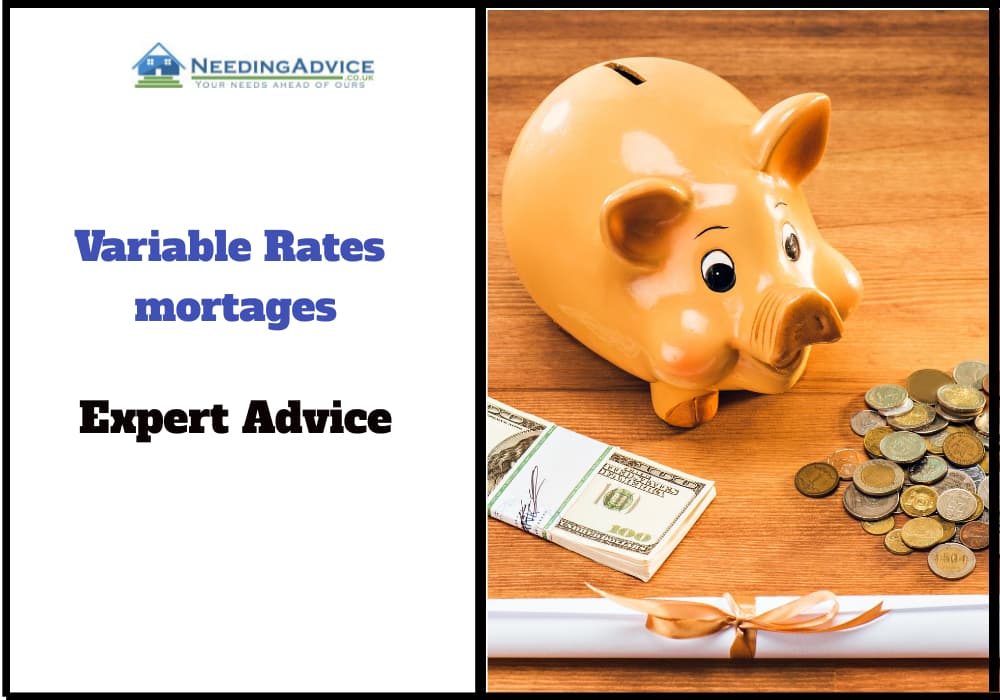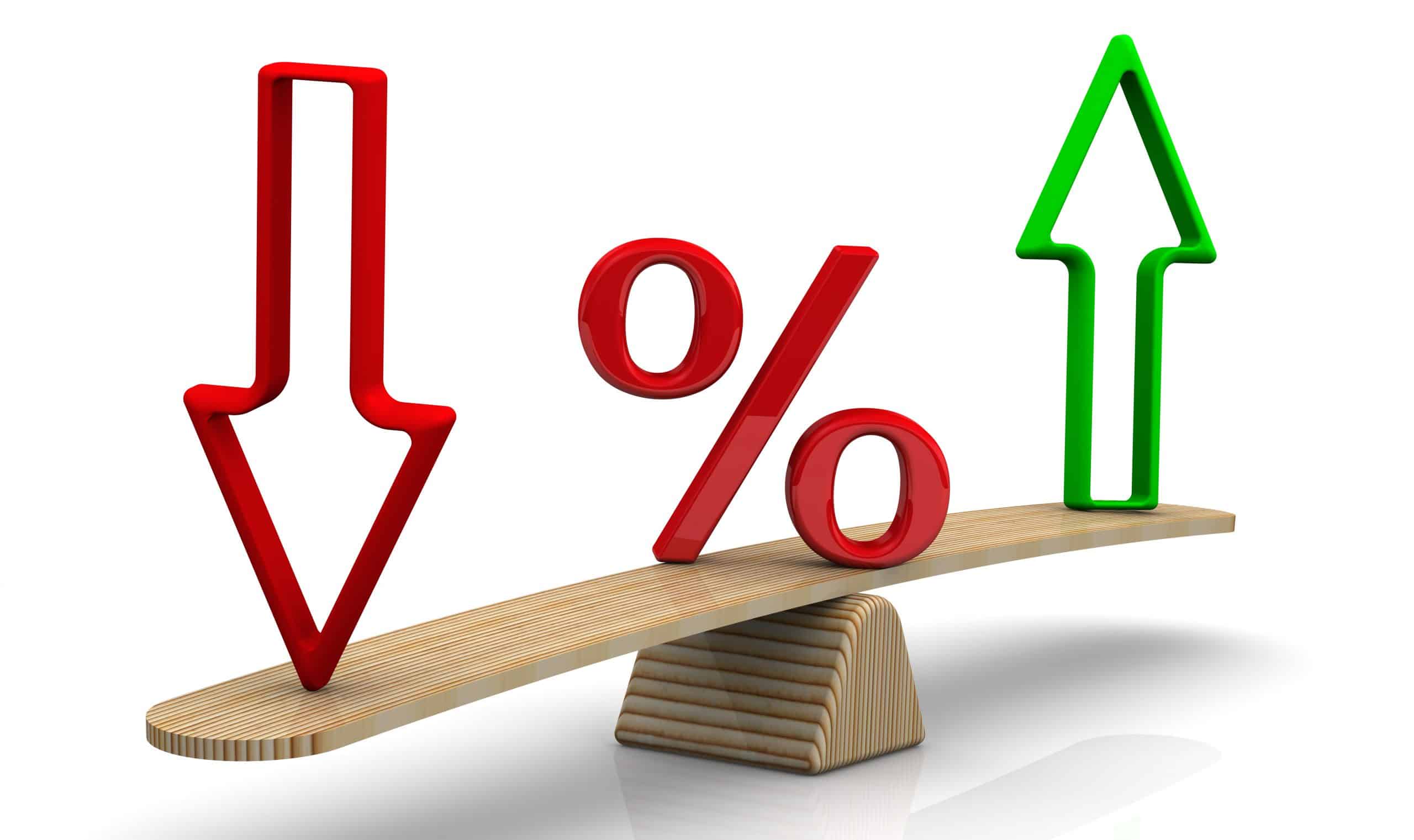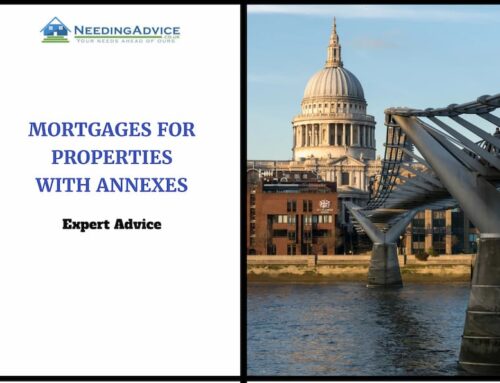Getting a variable rate mortgages
You may have heard of different types of interest rates regarding mortgages such as fixed rate and variable rate. As the name suggests, fixed rate mortgages mean the interest rate you pay during your deal is fixed at a set amount. Typically, fixed rate deals last between two to five years. With variable rate, the interest rate can change at any time.
Variable rate mortgages are the type of home loans in which the interest rate is not fixed, and monthly interest payments are adjusted at a level above a specific benchmark. The most common variable rate mortgage is an adjustable-rate mortgage (ARM). This means that the interest rate on your loan will adjust periodically based on changes in the prime lending rate.
The advantage of this type of mortgage is that if the prime lending rate drops, so does your mortgage’s interest rate. However, there’s also a disadvantage because if the excellent lending rate increases,
In this article, we discuss in further detail the different types of variable rate mortgages so you can find the type of mortgage most suited for you. We will answer frequently asked questions such as what is a variable rate? What are tracker rateA type of mortgage with an interest rate that is set a certa... mortgages, what are the pros and cons of variable rate mortgages, what happens to variable interest rate mortgages when interest rates go up etc…
Post Topics – Variable Mortgages
What is a variable rate mortgage?
Standard Variable Rate Mortgage
What are the Pros and Cons of Variable Rate Mortgages?
What happens to variable interest rate mortgages when interest rates go up?
How do I get started with my first variable rate mortgage?
FAQs – Variable Rate Mortgages
What is a Variable Rate Mortgage?
Variable rate mortgage is a type of product where the interest rates can fluctuate up or down, which means your monthly repayment amounts could change to reflect this. This is how the variable rate differs from fixed rate mortgage; as with fixed rate, your monthly repayments are constant and stay the same month on month for the length of your deal.
The interest rate set for variable rate mortgages largely depends on economic circumstances and the Bank of England’s base rateThe interest rate set by the Bank of England, affects the in.... If you are interested to learn more about variable rate mortgages, you can contact a specialist online mortgage broker.
There are three different types of variable rate mortgages called standard variable, tracker mortgage and discount mortgage.
Standard Variable Rate Mortgage
Standard variable rateThe interest rate charged by the lender that can vary over t... (SVR) is said to move in line with the Bank of England’s base rate, but this is not always the case and will largely depend on the mortgage lender. Typically, the standard variable rate is the interest rate that follows once a mortgage deal, such as a fixed rate, comes to an end. It is a good idea to shop around two to three months before your existing deal comes to an end so you can benefit from a lower interest rate as generally standard variable rates tend to be higher than other types of mortgage deals.
The advantage of standard variable rate is that it allows a borrower flexibility as you are not tied into a deal and usually allows for unlimited overpayments whereas when you are tied into a deal, there could be limits and charges are applied if you go over the limits. If you are part-way through a deal and you want to switch your mortgage product, there may be early exit fees involved.
If you require short-term borrowing or know you are looking to move or make changes to your mortgage, then it is a better option to be on a lender’s standard variable-rate mortgage as it allows you flexibility without potentially being charged fees. If you wish to use the standard variable rate, then you should be aware that interest rates can go up or down at any time which could affect your monthly repayments so make sure you are still able to afford the payments should the interest rate increase.
If you are interested in applying for a variable rate mortgage, you contact our team of expert mortgage brokers.
Tracker mortgage
Tracker mortgages are deals that tend to last between two to five years, although some lenders may offer tracker deals that are longer in length. It works by moving directly in line with the Bank of England’s base rate plus a few per cent.
For example, if the Bank of England’s base rate increases by 0.75%, then your interest rate for your mortgage loan will increase by 0.75%. In times when interest rates are low, it is advantageous to use a tracker mortgage but be aware that it can also increase if the Bank of England’s base rate increases.
If you are interested in getting a tracker mortgage deal, you can contact a specialist mortgage broker.
Discount mortgage
Discount mortgages are a product that offers a discounted rate on the lender’s standard variable rate and are generally deals that last between two to three years. The amount that your discount is set out will be constant throughout the agreed term, although payments can fluctuate monthly if the standard variable rate changes.
For example, a lender’s SVR is 4.5%, and your discount rate is 2%. This means your interest rate will be 2.5%. If the lender’s SVR decreases to 4%, your interest rate will be 2% and so on.
Similarly to fixed-rate mortgage deals, discount mortgages will need renewing, and it is best to start looking two to three months prior to your deal ending, or you will be reverted back to the lender’s standard variable rate with no discount applied.
What are the Pros and Cons of Variable Rate Mortgages?
Pros of Variable Rate Mortgages
• Flexibility
With a variable rate mortgage, borrowers have more control over their finances than they would with a fixed rate mortgageA type of mortgage with an interest rate that is fixed for a.... They can choose whether to pay off their mortgage faster or take out an extension to keep paying off their mortgage.
• Interest Rates
As mentioned above, variable rate mortgages allow borrowers to benefit from lower interest rates during periods of economic growth and higher interest rates during periods of recession.
Cons of Variable Rate Mortgages
• Lenders’ Terms
When choosing a variable-rate mortgage, it is important to understand what terms and conditions apply to this type of loan. For instance, some lenders only allow borrowers to change their interest rate once every 12 months while others allow borrowers to make one change each year.
• Refinancing Costs
Borrowers who decide to switch to a new lender must bear the cost of transferring their current mortgage into the new lender’s system. This process can be costly and time-consuming.
• Lenders
Some lenders charge extra fees for using a variable rate mortgage. For instance, if you want to switch
• Fees
A lot of people who opt for a variable rate mortgage are not aware that there are additional costs associated with this type of mortgage. These include early repayment charges, valuation fees and mortgage insurance premiums.
In our opinion, there are pros and cons to both. We think the biggest pro of a fixed rate mortgage is that you know exactly how much you’re going to pay as monthly payments. You don’t have to worry about changing your payment plan because you know exactly how long it’ll take you to pay off your house. On the other hand, some people like the flexibility of having a variable rate mortgage because they can always adjust their payment plan depending on their income and expenses. It allows them to save money when times are good and spend money when times are bad.
What happens to variable interest rate mortgages when interest rates go up?
If interest rates rise, then your interest rate will also increase. When interest rates rise, many people will try to refinance their home loans in order to lock in a low-interest rate. However, if you do not refinance before the end of your contract period, then you may lose any discounts you had previously received.
How do I get started with my first variable rate mortgage?
The first step in getting started with your first variable rate mortgage is to find a reputable bank or credit union that offers competitive rates. If you are planning on refinancing your existing mortgage, then you should contact your current lender to see if they offer a special rate. You can also contact a mortgage broker who will help you to find a suitable deal.
Once you’ve found a suitable lender, you will need to complete a pre-qualification form. A pre-qualification ensures that you qualify for a specific amount of money. The lender will use this information to determine the best possible rate for you.
Once you’ve completed the pre-qualification, you will receive a letter stating the amount of money available for you to borrow. You will also receive a term sheet which outlines all the details of your mortgage including the length of the loan, the interest rate and the total amount you will be required.
You will now need to arrange an appointment at your local branch where you will meet with a financial advisor. At this meeting, you will sign a number of documents such as the agreement, disclosure statement and application form. After signing these documents, you will be given a copy of the paperwork by the advisor.
Your next step will be to obtain a guarantor. Please note that a guarantorA person who guarantees to repay a mortgage if the borrower ... is required for all individuals. It depends on the lender’s criteria whether you need to provide a guarantor or not.
After obtaining a guarantor, you will need to make more visits to the branch. During these visits, you will need to provide proof of employment and proof of income. Once the documentation has been verified, you will be able to proceed with the final stage of the process – applying for the loan.
Your final step will be to submit your application to the lender. Once approved, you will be able to start making regular payments towards your new mortgage.
Next steps
What type of mortgage interest rate to use is dependent on an individual and their personal circumstances. If you are unsure and would like some further guidance, then get in touch with us today, and a professional advisor would be happy to help so you can pick the type of product that is most suitable for you.
FAQs – Variable Rate Mortgages
Can I get a Variable Rate Mortgage?
Yes, you can apply for a variable rate mortgage. This means that the interest rate on your mortgage could change over time. As long as you have met the minimum requirements, then you can apply for a variable rate mortgage.
Is there any early repayment charge for standard Variable Rate Mortgages?
No, there is no early repayment chargeA fee charged by lenders if the borrower pays off the mortga... for standard variable rate mortgages. However, it is important to remember that your monthly repayments may increase when the interest rate increases. For further information, you can contact a mortgage advisor.
How do I know what my interest rate will be?
The interest rate on your mortgage will depend on the terms of your mortgage contract. Your lender will usually give you a term sheet before you agree to the loan.
What are the tracker rates?
Tracker rates are used to track changes in the Bank of England base rate. They are calculated based on the Bank of England base interest rate plus a margin. Tracker rates are designed to reflect movements in the base rate.
Can I get a tracker rate mortgage approved?
Yes, you can get a tracker rate mortgage. Most mortgage lenders offer tracker rate mortgages. The main difference between a fixed rate and a tracker rate mortgage is that the interest rate on a tracker rate mortgage will fluctuate according to the Bank of England base rates.
How can I get a variable mortgage in the UK?
If you want to find out how to get a variable mortgage, then please call our advisors who can answer any questions you might have. We also recommend that you visit our website for more information about variable rate mortgages.








Leave A Comment